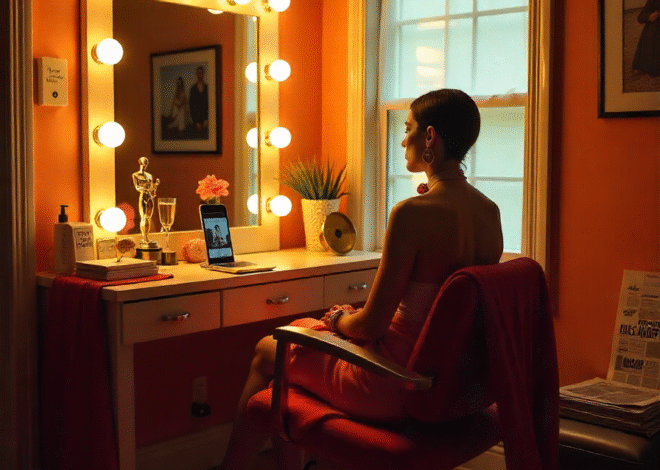
Celebrities: Influence, Impact, and the Culture of Fame
Celebrities occupy a central role in modern society, shaping fashion trends, influencing public opinion, and defining cultural moments. From movie stars and musicians to social media influencers and athletes, celebrities often serve as both role models and cautionary tales. Their lives are followed closely by millions, and their words and actions can have far-reaching effects on society, business, and even politics.
This article explores the world of celebrities—how they rise to fame, the responsibilities that come with their platform, and the evolving nature of celebrity culture in the digital age.
The Making of a Celebrity
Traditionally, celebrities gained fame through achievements in entertainment, sports, or public service. Think of actors like Marilyn Monroe or athletes like Muhammad Ali, who became global icons due to their talent and charisma.
Today, the path to fame is more diverse. The internet and social media platforms have created a new class of celebrities: content creators, influencers, and viral sensations. Someone with a smartphone and a unique perspective can build a global audience overnight. Platforms like TikTok, Instagram, and YouTube allow individuals to showcase their talents, share personal stories, or entertain the public without needing a Hollywood studio or major record label.
Despite these different paths to fame, the underlying ingredients remain the same: talent, timing, and the ability to connect with an audience.
The Power of Celebrity Influence
Celebrities wield enormous influence over public behavior. When a celebrity endorses a product, it often sells out within hours. When they speak on social or political issues, their words can spark national conversations.
This influence stems from the public’s emotional connection to celebrities. Fans often feel like they “know” their favorite actors or musicians through interviews, social media posts, and personal anecdotes. This sense of familiarity makes celebrity endorsements feel more authentic and persuasive than traditional advertising.
Some examples of celebrity influence include:
-
Fashion and Beauty Trends: Celebrities often set style standards. When a public figure wears a particular brand or hairstyle, it can quickly become a trend.
-
Health and Fitness: Fitness routines, diet trends, and wellness advice from celebrities can inspire millions to change their lifestyles.
-
Social Causes: Celebrities like Leonardo DiCaprio, Emma Watson, and Oprah Winfrey have used their platforms to promote causes such as environmental protection, gender equality, and education.
The Dark Side of Fame
While celebrity life may appear glamorous, it comes with intense scrutiny and pressure. Constant media attention, lack of privacy, and public expectations can take a toll on mental health. Many celebrities have spoken out about struggles with anxiety, depression, and burnout.
The rise of social media has added new layers of stress. Celebrities are now expected to maintain a constant online presence, respond to criticism, and live up to curated personas. Mistakes, no matter how minor, can lead to public backlash or “cancel culture,” where fans withdraw support due to controversial behavior or statements.
In some cases, the public obsession with celebrities can become dangerous, leading to stalking, invasive paparazzi, or unrealistic expectations that dehumanize the individuals behind the fame.
Celebrity Activism and Responsibility
With great power comes great responsibility. Many celebrities recognize their influence and use it to advocate for positive change. Whether it’s promoting charitable work, raising awareness about social issues, or encouraging civic participation, celebrity activism can shine a spotlight on important topics.
For example:
-
Malala Yousafzai, though not a celebrity in the traditional sense, became globally recognized for her advocacy for girls’ education.
-
Rihanna has used her fame not only to launch successful businesses but also to support numerous humanitarian causes through her Clara Lionel Foundation.
However, the authenticity of celebrity activism is often questioned. Audiences are increasingly skeptical of “performative activism”—support for a cause that appears superficial or is used for self-promotion.
The Future of Celebrity Culture
The concept of celebrity is evolving. As social media becomes more central to our lives, the lines between celebrities, influencers, and everyday people blur. Micro-influencers—individuals with small but highly engaged audiences—are now shaping trends and conversations alongside traditional stars.
Moreover, audiences are shifting their focus toward authenticity and relatability. Real stories, vulnerability, and behind-the-scenes content are valued more than the polished perfection of old-school celebrity branding.
Artificial intelligence and virtual influencers are also entering the scene, raising questions about the future of fame and how we define celebrity in a digital world.
Conclusion
Celebrities are more than just entertainers or athletes; they are cultural leaders, trendsetters, and public figures with the power to influence millions. While the allure of fame continues to captivate people around the globe, the realities behind the spotlight reveal a complex and sometimes challenging existence.
As celebrity culture continues to evolve, both the public and the stars themselves must navigate the balance between influence, responsibility, and authenticity. In a connected world, the power of fame is more potent—and more complicated—than ever before.

